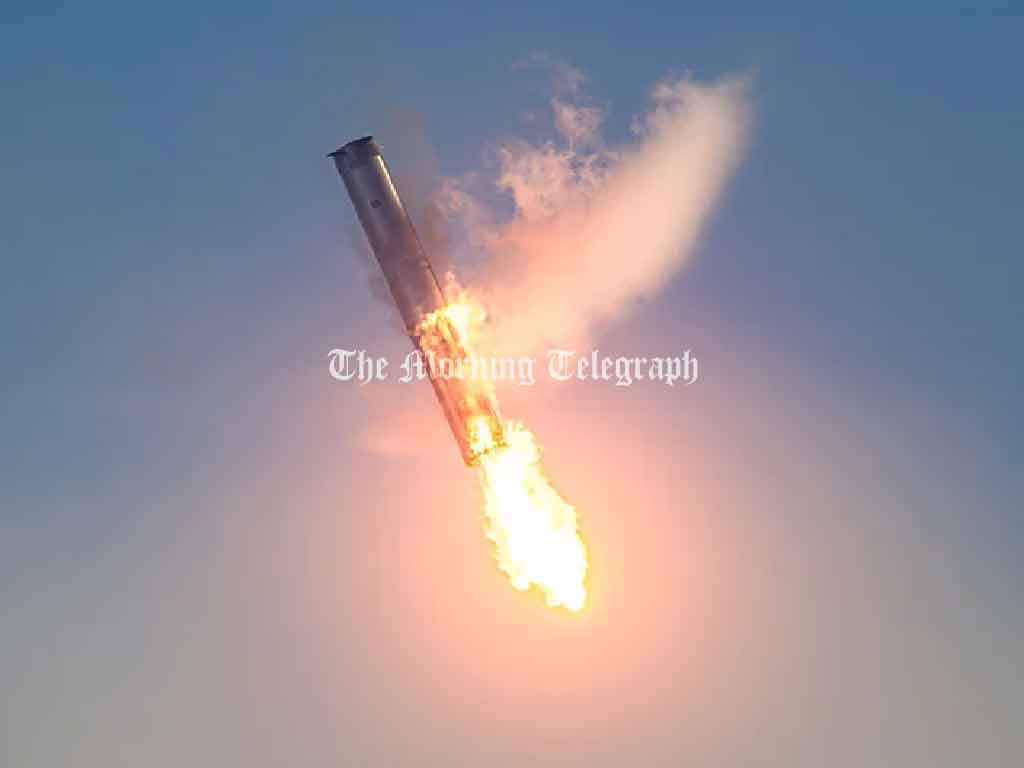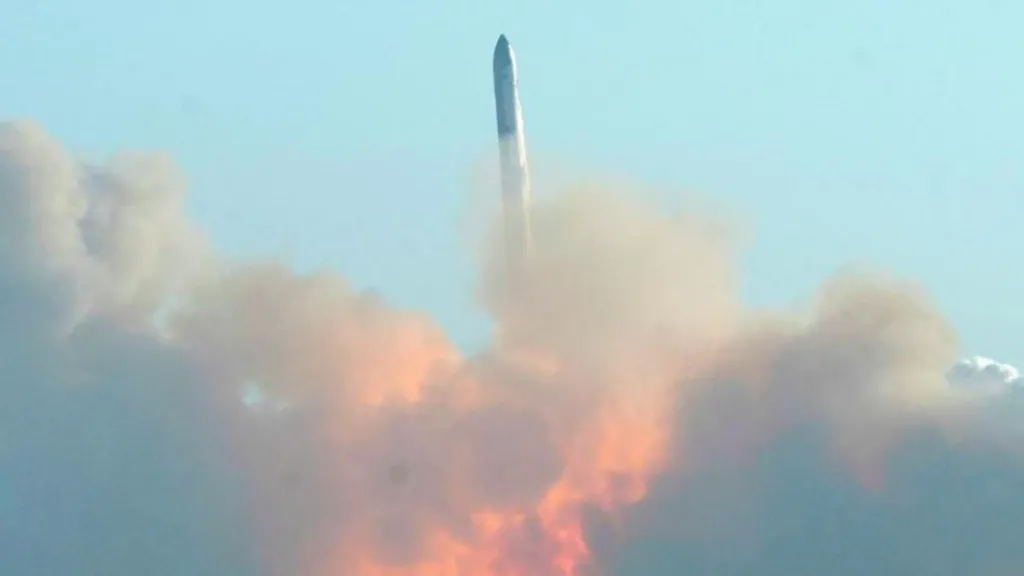
The US Federal Aviation Administration (FAA) has grounded SpaceX’s Starship rocket following a dramatic explosion during its most recent test flight. The incident occurred on Thursday when the rocket launched from Boca Chica, Texas. Its upper stage broke apart over the Caribbean, prompting safety measures, including flight diversions and an investigation into potential property damage on the Turks and Caicos Islands. There were no reported injuries.

SpaceX described the failure as a “rapid unscheduled disassembly” (RUD) and stated that it is working to identify the cause of the malfunction. Preliminary investigations suggest an oxygen and fuel leak near the engine firewall may have been the issue. Elon Musk, SpaceX’s CEO, expressed optimism about resuming launches soon, stating that the next flight could still occur within a month.
The flight marked the seventh test mission for Starship and featured a taller, upgraded version of the rocket designed to be fully reusable. The mission’s objectives included separating the upper stage from the Super Heavy booster and executing a controlled splashdown in the Indian Ocean. While the booster successfully returned to its launchpad, communication with the upper stage was lost four minutes into the flight, leading to the explosion.

The FAA has launched a mishap investigation, which SpaceX must complete before any further launches are approved. Additionally, a “debris response area” was established by the FAA to mitigate risks to aircraft. Several flights were temporarily delayed or rerouted, with some planes reporting low fuel levels while waiting for clearance.
Starship, standing at 123 meters tall, is the most powerful rocket ever built and is integral to SpaceX’s ambitions for deep-space exploration. The system is designed to support NASA’s Artemis missions to the Moon and Musk’s long-term vision of sending humans to Mars. Despite the setback, SpaceX remains committed to its vision of interplanetary travel and reusable rocket technology.
The test flight coincided with the first orbital launch of Blue Origin’s New Glenn rocket system, backed by Amazon founder Jeff Bezos. The parallel milestones highlight the fierce competition between Bezos and Musk as they push the limits of space exploration and aim to dominate the growing space vehicle market.




